Anthony Phillips is apologetic. “I meant to Google you”, he says, explaining that he is tending to an injury “on frozen peas”. But he has been told that I recently interviewed Steve Hackett, his successor as guitarist in Genesis and a musician he enjoys a healthy friendship with. “We’ve become good friends over the years; you wouldn't expect that, eh?” The interview continues in a jovial manner and I'm left with the impression that Phillips is as amiable as he is immensely talented. Phillips was one of four Charterhouse students who formed Genesis, and although he nominally collaborated with bassist / guitarist Mike Rutherford, his bandmates, keyboardist Tony Banks and singer Peter Gabriel leaned heavily on his musical acumen to flesh out their soul-tinted ballads. Banks, who led Genesis through multiple iterations until 1997, has said that Phillips’ departure was the most devastating, which might explain why the band considered calling it a day in 1970. “They have said that”, Phillips replies. “But really Mike was able to do what I did on twelve string guitar and he was a very good bass player. I suppose it was because it was the four of us at that point, then it must have been a bit of a worry for them when I left. But if me leaving was a bit of a shock, then Peter's departure was a monster shock”. Known for their indomitable spirit, Genesis soldiered on and after a period of recuperation, Phillips carried on with his musical journey. He remains on excellent terms with the individual members of the band (Banks saluted him onstage at the Progressive Music Awards ceremony in 2015) and collaborated closely with Rutherford on his 1977 record, ‘The Geese & The Ghost’. “I think that was originally supposed to be a duo album” Phillips recalls. “But by the time we came to releasing it, Mike really was feeling the pressure of Genesis, who had not yet made enough money from their music to make a comfortable living”. The two shared much in common: “There was a twelve string in my house, Mike played it and afterwards, I played it. Someone commented that we sounded so similar. We got Phil Collins to sing on two tracks on ‘The Geese & The Ghost’ and I got a lot of flack at the time from the press for using the ‘vocalist from Genesis’. We did a lot of recording in 1973 and 1974, although the album didn't come out until 1977 due to various reasons. Phil wasn’t the lead vocalist in Genesis when he sang on my album”. “Phil did have a good voice” Anthony continues, “but I don’t think he was ever going to replace Peter until they had exhausted all other options. And then they were like, “Phil, do you want to have a crack at it?” So, they got in a new drummer for ‘A Trick of The Tail’ who was Bill Bruford, I believe. Mike, Phil and I recorded a single together in 1973, which didn't get released. I think the reason was that it didn’t sound as good as the demo. But I got on very, very well with Phil. He used to drive in from Epsom and pick me up." There’s hardly a guitar to be heard on Phillips’ ‘1984’ album released in 1981, a record driven by keyboards, kineticism and percussive effects. In many ways, it’s Phillips’ most inventive work, complete with soaring chord changes and hypnotic loops. Chuffed by my interest in the album, Phillips suggests that it makes for “Good driving music”. He’s less convinced of the Eno-esque qualities I hear in the music, stating that he wasn't consciously imitating anyone. “I wasn't aware of any electronic artists like Jean-Michel Jarre when I wrote it, but the album has become something of a curate’s egg. It's driven by rhythmic patterns and (songwriter) Steven Wilson says it's the album he associates most with me when he listens to it, which you wouldn’t expect. Samplers were primitive in the 1980s and you couldn't use Fairlights unless you had huge amounts of money. I certainly couldn’t afford them, so I was using other keyboards”. ‘1984’ has some of the trappings of the decade, but there are no Stock, Aitken & Waterman style freak outs, or Eurovision-tinted bridges. What we get is something unfiltered and eminently enjoyable. Phillips may not be as well-known as some of the other members of Genesis, but he still harbours a committed fanbase; many of them Italian. “I believe (music journalist) Mario Giammetti has written a book about me”, Phillips chuckles. “I haven't read it myself, but I have heard about it. He’s a Genesis fanatic and he forensically tries to get hold of every fact. Everyone has their interests and Genesis must be his. Genesis always had a stronghold in Italy and performed one of their last concerts there; to half a million, or something. Italy is open to a lot of different styles of music and the ‘1984’ album is popular there. The Italians are like the Germans in that regard; turned-on people (for music)”. It's time to ask the Desert Island Discs question: piano or guitar? The prog musician is tickled by the enquiry. “If it was a guitar, it would have to be a twelve string. You can do all sorts of things on a twelve string, but there’s a compass of range on piano. I love them both, but for the simplicity of travel, I’ll go with guitar”. Phillips admits he was something of a “lost soul” when he left Genesis and spent a period drifting from vocation to vocation. In the end, he elected to study music and took up piano. “I had a very good piano teacher” he beams. “I mean, she was no nonsense, but she helped me relax into the music. “Drop your shoulders” she would say, because my shoulders would tense up when I was playing”. “I don’t know if you have heard the ‘From Genesis, To Revelation’ album” Phillips explains “but when we got it back, (producer) Johnathan King had put all sorts of stringed musicians on the tracks, which we didn’t like at all. I don't know if I thought it at the time, but I’m guessing it coalesced in the back of my mind, and I decided I was going to learn how to do it (arrange an orchestra)”. Paul McCartney is someone who has avoided learning how to read musical notation for fear it would inhibit his songwriting process and Phillips has some sympathy for that philosophy. “Although I've become more of an all-round musician, I wonder if I've lost some of my originality” he muses. “Limitations are a good thing. I first started playing piano when I was about fifteen and Tony Banks must have thought I was playing some truly absurd chords. I wonder if you overstudy, you lose your instinctive feel. I remember finding it frustrating at the beginning when I started to learn how to read music. When you go from ear to notation, it’s frustrating to stop yourself, because ‘It doesn't work like that!’” Phillips recalls hearing ‘Clair de Lune’ and thinking it sounded like The Beatles (“It's become popular in the last ten years; it features on ‘Ocean's 11’”), which helped instil a taste for classical music he has yet to shake off. “As I say, my piano teacher was bursting with encouragement and encouraged me to work on pieces that might have been beyond my ability” he laughs. “There's a wealth of great music from 1850 onwards, the impressionistic stuff is wonderful”. He quotes Giuseppe Ferdinando Brivio during the course of the interview, which is fitting because Genesis (certainly Banks) were influenced by Procol Harum. “I think the ‘Trespass’ album was the blueprint for everything Genesis did after” Phillips says, with justifiable pride. “Peter was listening to a lot of soul, but the influence of those prog bands was having an influence on us. We were also making a transition to being a band. ‘From Genesis to Revelation’ was a quasi Brill Building album. We were writing songs, but the ‘Trespass’ album was where we realised we had to perform. Tony didn't like playing the organ, but once he did he could play these lovely inverted chords to what Mike and I were playing. It led to the other albums Genesis did, of which I think ‘Selling England By The Pound’ is the best. No disrespect to John Mayhew, but the arrival of a really good drummer like Phil elevated the band even further”. Poetry got Phillips through Lockdown and in his book, he says he discovered the work that inspired The Beatles’ ‘Golden Slumbers’ (a poem by 17th dramatist Thomas Dekker – Beatles’ History Ed). He’s impressed to hear that I’ve interviewed all four members of 10cc, stating he once met a piano tuner who claimed he worked for “One hundred CC”. “I love Lol Creme's story that they switched off the lights and listened to ‘I’m Not In Love’. They knew then that they had a good one”. Phillips nearly met McCartney in the Abbey Road canteen while he was working with Camel (“I think this was 1982”) and says Roger Daltrey considered covering one of his songs. “But then the album never got made” Phillips says. “And I wrote something for Bucks Fizz, but then they had that awful coach crash. And Chris Neil wanted to get me a gig with Sheena Easton, but then he lost her. So, I had a limited success as a songwriter”. Rather than sit around and mope, Phillips focused on his solo work, a catalogue reissue label Cherry Red acquired in 2014. As it happens, Cherry Red are re-distributing two of his works: ‘Gypsy Suite’ (out on February 23rd) and ‘Slow Dance’ (out on March 29). “I think there’s a misconception about ‘Slow Dance’, because it's not a new release” Phillips admits. “That's a misnomer. You mentioned ‘1984’, which was in the 1980s and it was around this time I started writing for what became ‘Slow Dance’. It’s a very lyrical work, probably the most lyrical work of mine, and it’s Mario’s favourite of mine. ‘Slow Dance’ is finally back in print, and it has interesting structure and form”. With a gestation period of “eight or nine months”, the recording tested the composer and Phillips says by the time he had finished working on it “everything sounded wrong”. “I always say “Give it two years” the guitarist states. “After two years listen to it with fresh ears, and see what you think”. There’s much to enjoy on ‘Slow Dance’, an album that follows the footsteps of ‘Tubular Bells’ in dividing one song over two sides of vinyl. Clearly aimed at prog listeners, the album demonstrates the songwriter's bravery and spontaneity, although ‘Gypsy Suite’ written in conjunction with Harry Williamson is also noteworthy. “Harry, of course, is the son of Henry Williamson”. Anthony notes. “We did some work for the soundtrack to ‘Tarka the Otter’, his father’s film. We recorded this before the release of ‘The Geese & The Ghost’. In the end, the music wasn’t used”. It wasn’t, but it did introduce two budding musicians to each other, who were keen to continue recording together. “Harry played six string and I played twelve. Harry was more eclectic in his work, I must say. We may have been absorbing influences, but in this remastered version my engineer has brought up a pretty good quality to the full mastered version. We did a series of recordings together in the late 1970s, and the recordings were released in 1995 for the first time”. We return to Phillips’ metiér as a classical elegist. “I sometimes wonder if I was too influenced by some composers” Phillips says, highlighting Vaughan Williams as one such example. “The music was so wonderful, so I studied classical guitar. I realised that writing down the chords wasn't enough; I needed to manuscript everything”. It’s not uncommon for prog musicians to pivot to classical music. When I interviewed Tony Banks in 2019 he felt people were more appreciative of his work for strings, as opposed to his output as a solo artist. But it’s precisely this desire to change and evolve that makes their music progressive. As he did in Charterhouse, Phillips is determined to experiment with form and sound. “I don’t know if they'll play these albums on BBC Radio 6!” he cackles. “But I'm sure some people will enjoy them”. Photos by Al Stuart
Band Links:-
http://www.anthonyphillips.co.uk/http://en.wikipedia.org/wiki/Anthony_Phillips
https://www.facebook.com/AnthonyPhillipsOfficial
Play in YouTube:-
Picture Gallery:-
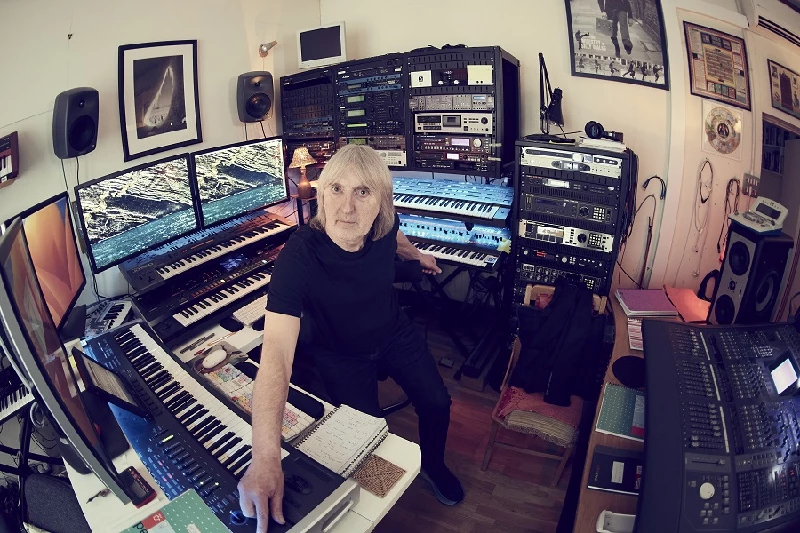
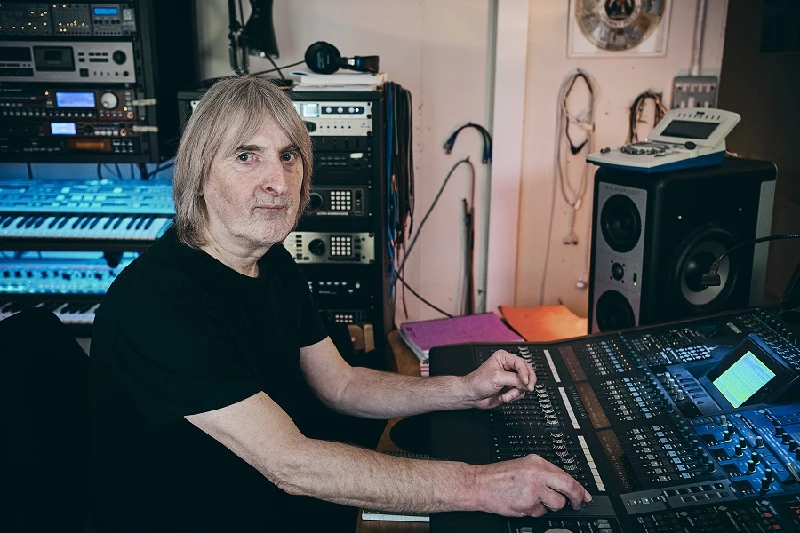
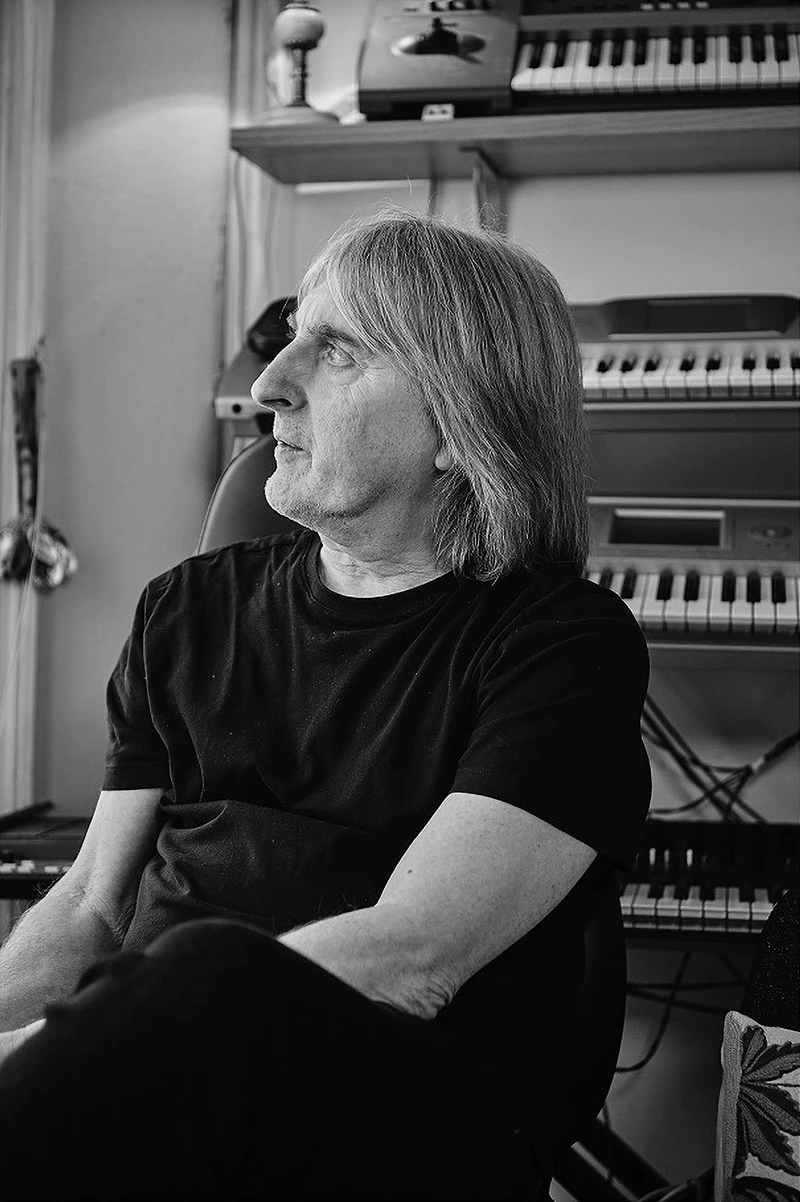
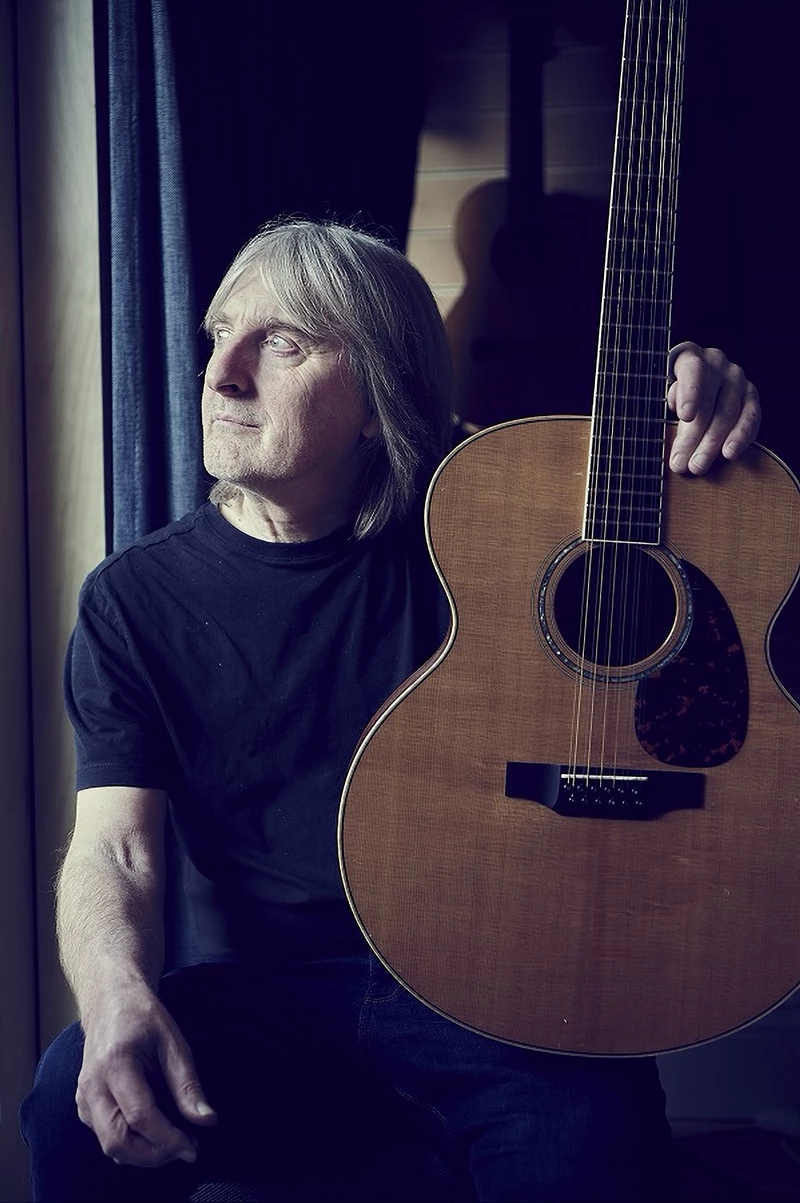
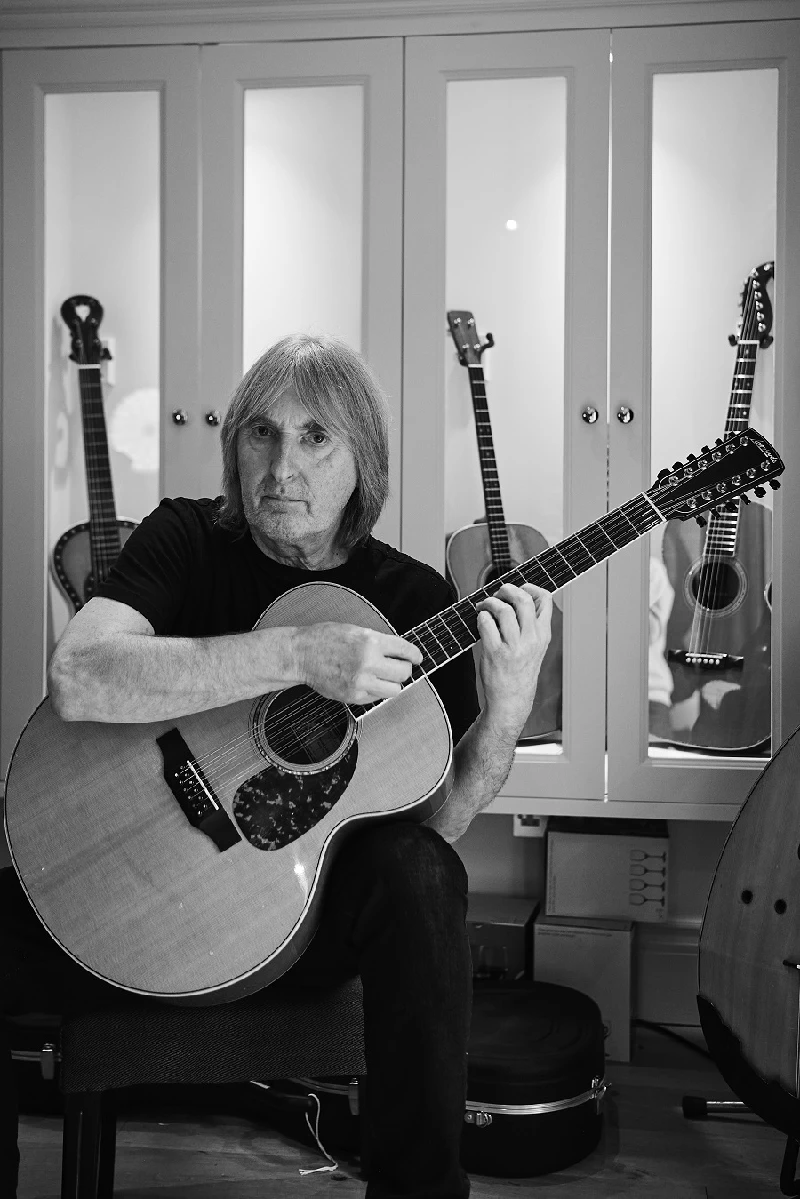
intro
Founder member of Genesis, guitarist Anthony Phillips chats to Eoghan Lyng about his long, eclectic solo career and recent reissue of 1970s works.
profiles |
|
Anthony Phillips (2009) |
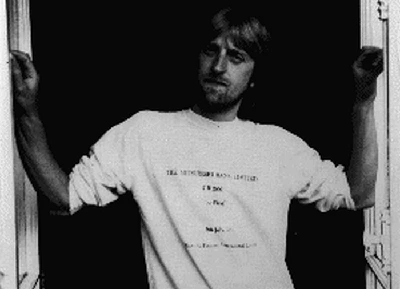
|
| Anthony Phillips was the original guitarist with Genesis and appeared on their debut, 'From Genesis to Revelation'. Malcolm Carter examines three of his solo albums, 'The Geese and the Ghost', 'Wise After the Event' and '1984, all of which have been recently reissued. |
soundcloud
reviews |
|
Pathways and Promenades: Missing Links Volume IV (2010) |
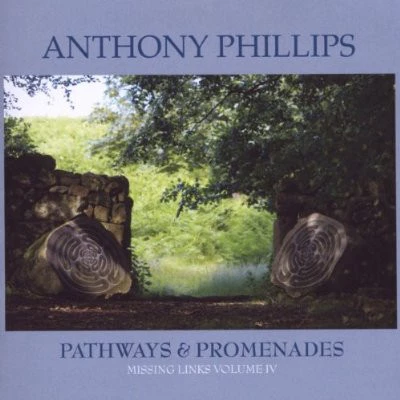
|
| Excellent largely instrumental collection of rarities from former original Gensis guitarist, Anthony Phillips |
most viewed articles
current edition
Peter Doherty - Blackheath Halls, Blackheath and Palace Halls, Watford, 18/3/2025 and 21/3/2025Armory Show - Interview with Richard Jobson
Liz Mitchell - Interview
Lauren Mayberry - Photoscapes
Deb Googe and Cara Tivey - Interview
Max Bianco and the BlueHearts - Troubadour, London, 29/3/2025
Garfunkel and Garfunkel Jr. - Interview
Maarten Schiethart - Vinyl Stories
Clive Langer - Interview
Sukie Smith - Interview
previous editions
Heavenly - P.U.N.K. Girl EPBoomtown Rats - Ten Songs That Made Me Love....
Trudie Myerscough-Harris - Interview
Doris Brendel - Interview
Beautiful South - Ten Songs That Made Me Love...
Dwina Gibb - Interview
Kay Russell - Interview with Kay Russell
Pulp - Ten Songs That Made Me Love...
Barrie Barlow - Interview
Sound - Interview with Bi Marshall Part 1
most viewed reviews
current edition
Davey Woodward - Mumbo in the JumboNigel Stonier - Wolf Notes
Wings - Venus and Mars
Kate Daisy Grant and Nick Pynn - Songs For The Trees
Only Child - Holy Ghosts
Neil Campbell - The Turnaround
Philip Jeays - Victoria
Darkness - Dreams On Toast
Suzanne Vega - Flying With Angels
Charles Ellsworth - Cosmic Cannon Fodder
Pennyblackmusic Regular Contributors
Adrian Janes
Amanda J. Window
Andrew Twambley
Anthony Dhanendran
Benjamin Howarth
Cila Warncke
Daniel Cressey
Darren Aston
Dastardly
Dave Goodwin
Denzil Watson
Dominic B. Simpson
Eoghan Lyng
Fiona Hutchings
Harry Sherriff
Helen Tipping
Jamie Rowland
John Clarkson
Julie Cruickshank
Kimberly Bright
Lisa Torem
Maarten Schiethart